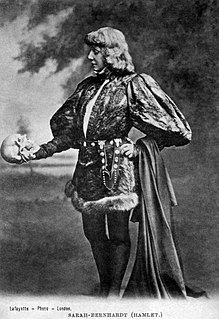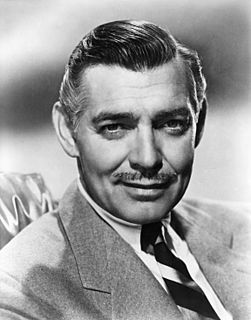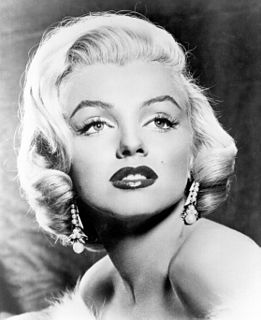 W
WActing is an activity in which a story is told by means of its enactment by an actor or actress who adopts a character—in theatre, television, film, radio, or any other medium that makes use of the mimetic mode.
 W
WAn actor or actress is a person who portrays a character in a performance. The actor performs "in the flesh" in the traditional medium of the theatre or in modern media such as film, radio, and television. The analogous Greek term is ὑποκριτής (hupokritḗs), literally "one who answers". The actor's interpretation of a role—the art of acting—pertains to the role played, whether based on a real person or fictional character. This can also be considered an "actor's role," which was called this due to scrolls being used in the theaters. Interpretation occurs even when the actor is "playing themselves", as in some forms of experimental performance art.
 W
WA character actor is a supporting actor who plays unusual, interesting, or eccentric characters. The term, often contrasted with that of leading actor, is somewhat abstract and open to interpretation. In a literal sense, all actors can be considered character actors since they all play "characters", but in the usual sense it is an actor who plays a distinctive and important supporting role.
 W
WThe term child actor or child actress is generally applied to a child acting on stage or in movies or television, but also to an adult who began their acting career as a child. To avoid confusion, the latter is also called a former child actor. Closely associated is teenage actor or teen actor, an actor who reached popularity as a teenager.
 W
WCross-sex acting refers to actors or actresses portraying a character of the opposite sex. It is distinct from both transgender and cross-dressing character roles.
 W
WA dual role refers to one actor playing two roles in a single production. Dual roles may be deliberately written into a script, or may instead be a choice made during production, often due to a low budget. In film and television, dual roles are often used for comic effect, or to depict identical twins or relatives. In a theatrical production where more than one actor plays multiple characters, it is sometimes referred to as an "Ironman" cast.
 W
WAn impersonator is someone who imitates or copies the behavior or actions of another. There are many reasons for impersonating someone:Entertainment: An entertainer impersonates a celebrity, generally for entertainment, and makes fun of their personal lives, recent scandals and known behavior patterns. Especially popular objects of impersonation are Elvis Presley and Michael Jackson. Entertainers who impersonate multiple celebrities as part of their act, can be sorted into impressionists and celebrity impersonators. Male drag queens have traditionally been called "female impersonators", although this terminology is now considered outdated. Crime: As part of a criminal act such as identity theft. This is usually where the criminal is trying to assume the identity of another, in order to commit fraud, such as accessing confidential information, or to gain property not belonging to them. Also known as social engineering and impostors. Decoys, used as a form of protection for political and military figures. This involves an impersonator who is employed to perform during public appearances, to mislead observers. Sowing discord, causing people to fight, or dislike each other for social, business or political gain. Companionship: a rental family service provides actors portraying friends or family for platonic purposes.
 W
WLeading Lady is a term often applied to the leading actress in the performance if her character is the protagonist. It is also an informal term for the actress who plays a secondary lead, usually a love interest, to the leading actor in a film or play.
 W
WA leading man is a complimentary term for the actor who is the primary male protagonist in a film, television show, or play, usually the main character who can be an action hero or any sort of man, often including a love interest to the leading lady. A leading man is sometimes an all-rounder; capable of being comical and/or heroic, singing, dancing, and acting at a professional level.
 W
WMatinée idol is a term used mainly to describe film or theatre stars who are adored to the point of adulation by their fans. The term almost exclusively refers to adult male actors.
 W
WA monologist, or interchangeably monologuist, is a solo artist who recites or gives dramatic readings from a monologue, soliloquy, poetry, or work of literature, for the entertainment of an audience. The term can also refer to a person who monopolizes a conversation; and, in an obsolete sense, could describe a bird with an unchanging, repetitive song.
 W
WPresentational acting and the related representational acting are opposing ways of sustaining the actor–audience relationship. With presentational acting, the actor acknowledges the audience. With representational acting, the audience is studiously ignored and treated as voyeurs.
 W
WA skomorokh was a medieval East Slavic harlequin, or actor, who could also sing, dance, play musical instruments and compose for oral/musical and dramatic performances. The etymology of the word is not completely clear. There are hypotheses that the word is derived from the Greek σκώμμαρχος ; from the Italian scaramuccia ; from the Arabic masẋara; and many others.
 W
WA stage name is a pseudonym used by performers and entertainers such as actors, comedians, singers, and musicians. Such titles are adopted for a wide variety of reasons and may be similar or nearly identical to an individual's birth name. In some situations, though not often, a performer will adopt their title as a legal name. Nicknames and maiden names are sometimes used in a person's professional name.
 W
WIn filmmaking, a stunt double is a cross between a body double and a stunt performer, specifically a skilled replacement used for dangerous sequences, such as jumping out of a building or from vehicle to vehicle, and for other sophisticated stunts. Stunt doubles may be used in cases where an actor's physical condition or age precludes much activity, or when an actor is contractually prohibited from taking certain risks. A dance double performs the dangerous or physically difficult dance parts of a character's role.
 W
WA stunt performer, often referred to as a stuntman or stuntwoman, is a trained professional who performs daring acts, often as a career. Stunt performers usually appear in films or on television, as opposed to a daredevil, who performs for a live audience. When they take the place of another actor, they are known as stunt doubles.
 W
WVoice acting is the art of performing voice-overs to represent a character or provide information to an audience. Performers are called voice actors/actresses, voice artists, voice talent, voice-over artists, or voice-over talent. Voice acting is recognised as a specialized dramatic profession in the United Kingdom, primarily due to the BBC's long tradition of radio drama production.